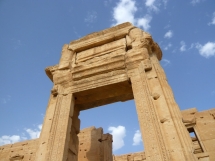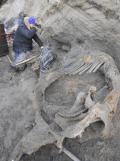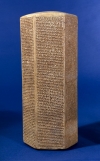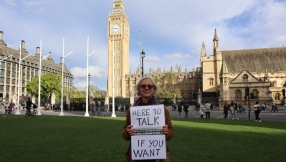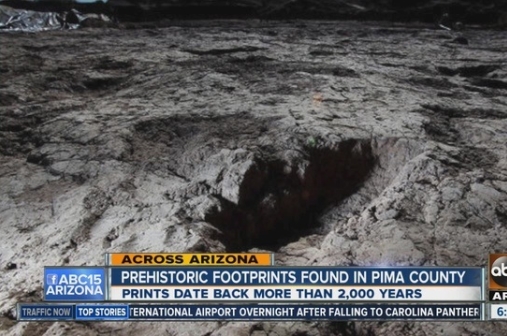
Archaeologists recently chanced upon very well-preserved ancient footprints which were discovered during a bridge construction project in southern Arizona.
The ancient footprints give a glimpse of how Native Americans lived between 2,500 and 3,000 years ago, at a time when early human beings were transitioning from being nomadic hunter-gatherers to more sedentary village dwellers.
Ian Milliken, an archaeologist for the Pima County Office of Sustainability and Conservation, said in an article by The Scientific American that the footprints seem to belong to a family of four—two adults, two children and a dog.
The footprints, considered as among the oldest discovered in the Southwest, appear to have been left on a raised irrigation ditch on fields measuring 15 meters by 15 meters.
"They're exponentially larger than anything we've discovered for this time period," Milliken told The Scientific American.
"What's really unique about this is that it actually captures a point in time, probably down to the day these prints were left," he said.
Paul Fish, curator emeritus of the Arizona State Museum at the University of Arizona in Tucson, said these archaeological findings are significant because they support the belief that Native Americans from this area devised their own, home-grown way of irrigating their crops.
The contrary belief is that the Natives adapted their irrigation technique after migrating from Mesoamerica.
"The presence of well-developed irrigation strategies in the Tucson Basin by 1500 B.C. strongly indicates that large-scale canal technologies of the Phoenix Basin Hohokam developed locally," Fish also told The Scientific American.
Milliken, however, said that these new findings do not necessarily debunk Mesoamerica migration hypothesis.
"We have evidence of very early agriculture in Mexico that predates this, but that doesn't mean it wasn't here at the same time," he said.
The researchers nevertheless agreed that these footprints open up the door for discovering ancient life in the U.S.
"We've got five stratified layers below this one. There's so much more to learn," he said.






